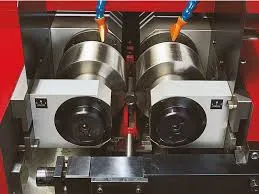
-
 Afrikaans
Afrikaans -
 Albanian
Albanian -
 Amharic
Amharic -
 Arabic
Arabic -
 Armenian
Armenian -
 Azerbaijani
Azerbaijani -
 Basque
Basque -
 Belarusian
Belarusian -
 Bengali
Bengali -
 Bosnian
Bosnian -
 Bulgarian
Bulgarian -
 Catalan
Catalan -
 Cebuano
Cebuano -
 Corsican
Corsican -
 Croatian
Croatian -
 Czech
Czech -
 Danish
Danish -
 Dutch
Dutch -
 English
English -
 Esperanto
Esperanto -
 Estonian
Estonian -
 Finnish
Finnish -
 French
French -
 Frisian
Frisian -
 Galician
Galician -
 Georgian
Georgian -
 German
German -
 Greek
Greek -
 Gujarati
Gujarati -
 Haitian Creole
Haitian Creole -
 hausa
hausa -
 hawaiian
hawaiian -
 Hebrew
Hebrew -
 Hindi
Hindi -
 Miao
Miao -
 Hungarian
Hungarian -
 Icelandic
Icelandic -
 igbo
igbo -
 Indonesian
Indonesian -
 irish
irish -
 Italian
Italian -
 Japanese
Japanese -
 Javanese
Javanese -
 Kannada
Kannada -
 kazakh
kazakh -
 Khmer
Khmer -
 Rwandese
Rwandese -
 Korean
Korean -
 Kurdish
Kurdish -
 Kyrgyz
Kyrgyz -
 Lao
Lao -
 Latin
Latin -
 Latvian
Latvian -
 Lithuanian
Lithuanian -
 Luxembourgish
Luxembourgish -
 Macedonian
Macedonian -
 Malgashi
Malgashi -
 Malay
Malay -
 Malayalam
Malayalam -
 Maltese
Maltese -
 Maori
Maori -
 Marathi
Marathi -
 Mongolian
Mongolian -
 Myanmar
Myanmar -
 Nepali
Nepali -
 Norwegian
Norwegian -
 Norwegian
Norwegian -
 Occitan
Occitan -
 Pashto
Pashto -
 Persian
Persian -
 Polish
Polish -
 Portuguese
Portuguese -
 Punjabi
Punjabi -
 Romanian
Romanian -
 Russian
Russian -
 Samoan
Samoan -
 Scottish Gaelic
Scottish Gaelic -
 Serbian
Serbian -
 Sesotho
Sesotho -
 Shona
Shona -
 Sindhi
Sindhi -
 Sinhala
Sinhala -
 Slovak
Slovak -
 Slovenian
Slovenian -
 Somali
Somali -
 Spanish
Spanish -
 Sundanese
Sundanese -
 Swahili
Swahili -
 Swedish
Swedish -
 Tagalog
Tagalog -
 Tajik
Tajik -
 Tamil
Tamil -
 Tatar
Tatar -
 Telugu
Telugu -
 Thai
Thai -
 Turkish
Turkish -
 Turkmen
Turkmen -
 Ukrainian
Ukrainian -
 Urdu
Urdu -
 Uighur
Uighur -
 Uzbek
Uzbek -
 Vietnamese
Vietnamese -
 Welsh
Welsh -
 Bantu
Bantu -
 Yiddish
Yiddish -
 Yoruba
Yoruba -
 Zulu
Zulu
thread rolling machines
Thread Rolling Machines An Essential Tool in Industrial Manufacturing
Thread rolling machines are pivotal in the manufacturing sector, particularly in producing high-strength screws, bolts, and other threaded components. These machines utilize a unique cold forming process, which enhances the mechanical properties of the materials being worked on, resulting in components that are not only durable but also cost-effective.
The thread rolling process itself involves the use of two or more hardened rollers that grip a round or cylindrical workpiece. As the rollers are rotated, they impart a high degree of pressure onto the material, causing it to flow and form threads through a series of intricate movements. This method not only allows for superior dimensional accuracy but also significantly reduces material waste compared to traditional cutting methods. By reshaping the material rather than removing it, manufacturers can achieve better yield rates and utilize raw materials more efficiently.
One of the main advantages of thread rolling machines is their ability to produce threads with superior surface finishes. The cold working process produces smoother surfaces than machining methods, which can often leave behind burrs and rough edges. Additionally, the compressive stresses introduced in the material during the rolling process enhance fatigue resistance, making the finished products suitable for high-stress applications commonly found in automotive and aerospace industries.
Thread rolling machines come in various configurations, including flat, cylindrical, and planetary types. Each type is designed for specific applications and production volumes, allowing manufacturers to choose machines that best fit their needs. Flat rolling machines are ideal for producing a variety of thread sizes and are commonly used in high-volume production environments. In contrast, planetary rolling machines are more versatile, allowing for the production of complex thread forms and shapes.
thread rolling machines

Modern thread rolling machines are equipped with advanced technology, including CNC (Computer Numerical Control) systems. These systems enhance precision by allowing operators to program complex thread profiles and monitor the production process in real-time. The integration of technology not only improves efficiency but also reduces the likelihood of errors, ensuring high-quality outputs consistently.
In recent years, sustainability has become a critical consideration in manufacturing processes. Thread rolling machines contribute to this trend by minimizing waste, energy consumption, and manufacturing costs. The cold forming process is energy-efficient, requiring less power compared to traditional machining methods. Moreover, the longer tool life observed with rolling processes means less frequent replacements, further contributing to a reduction in environmental impact.
As industries continue to evolve, the demand for high-performance threaded components is expected to rise. Thread rolling machines will play an essential role in meeting these needs, driven by advancements in technology and materials. Manufacturers are increasingly investing in automated and smarter rolling machines to enhance productivity and maintain competitiveness in the global market.
In conclusion, thread rolling machines are indispensable in modern manufacturing, offering a blend of efficiency, precision, and sustainability. As industries strive for innovation and quality, these machines will remain at the forefront, shaping the future of threaded component production. From automotive to aerospace, the impact of thread rolling technology is profound, ensuring that manufacturers can meet the ever-growing demands of various sectors efficiently and effectively.
